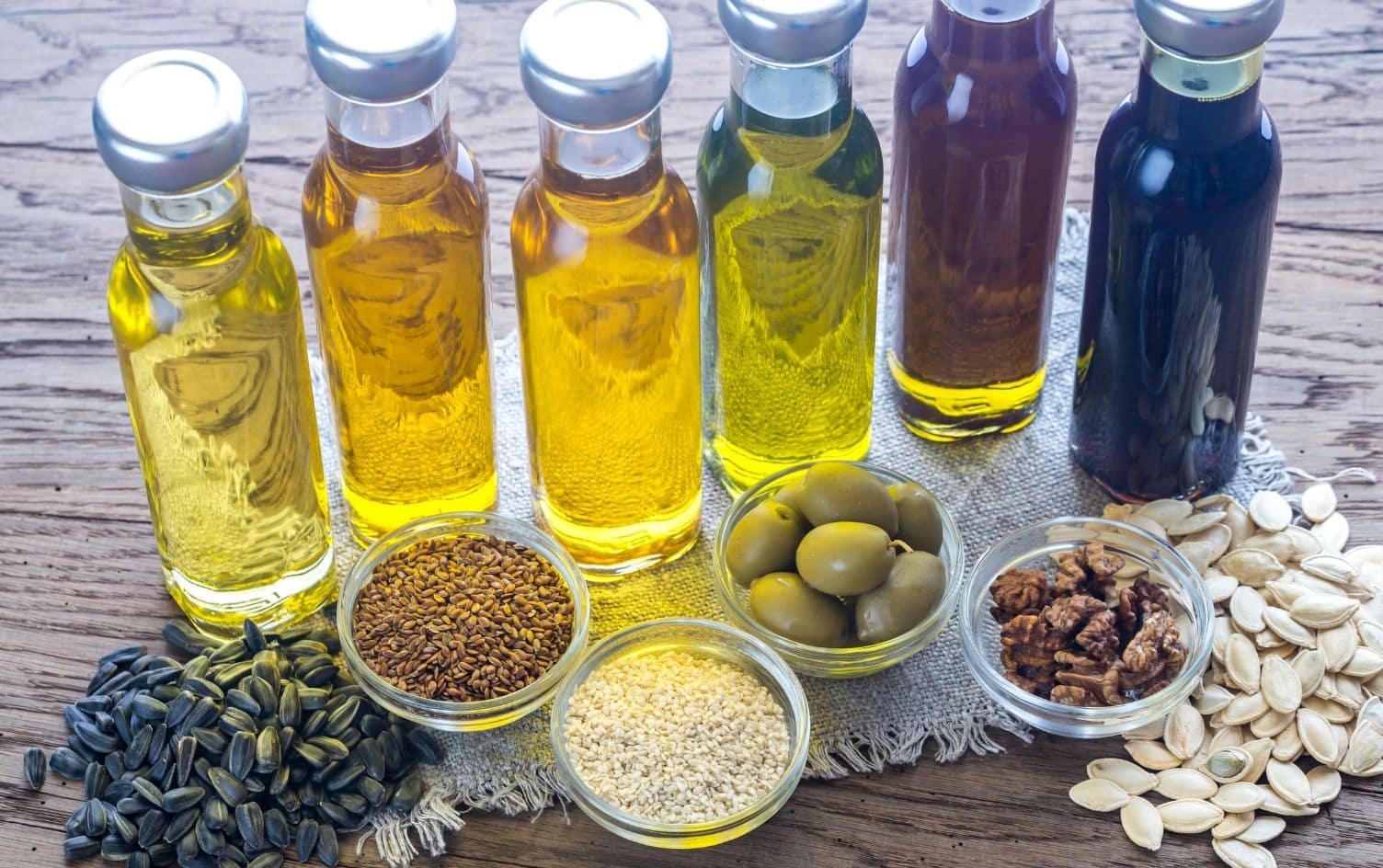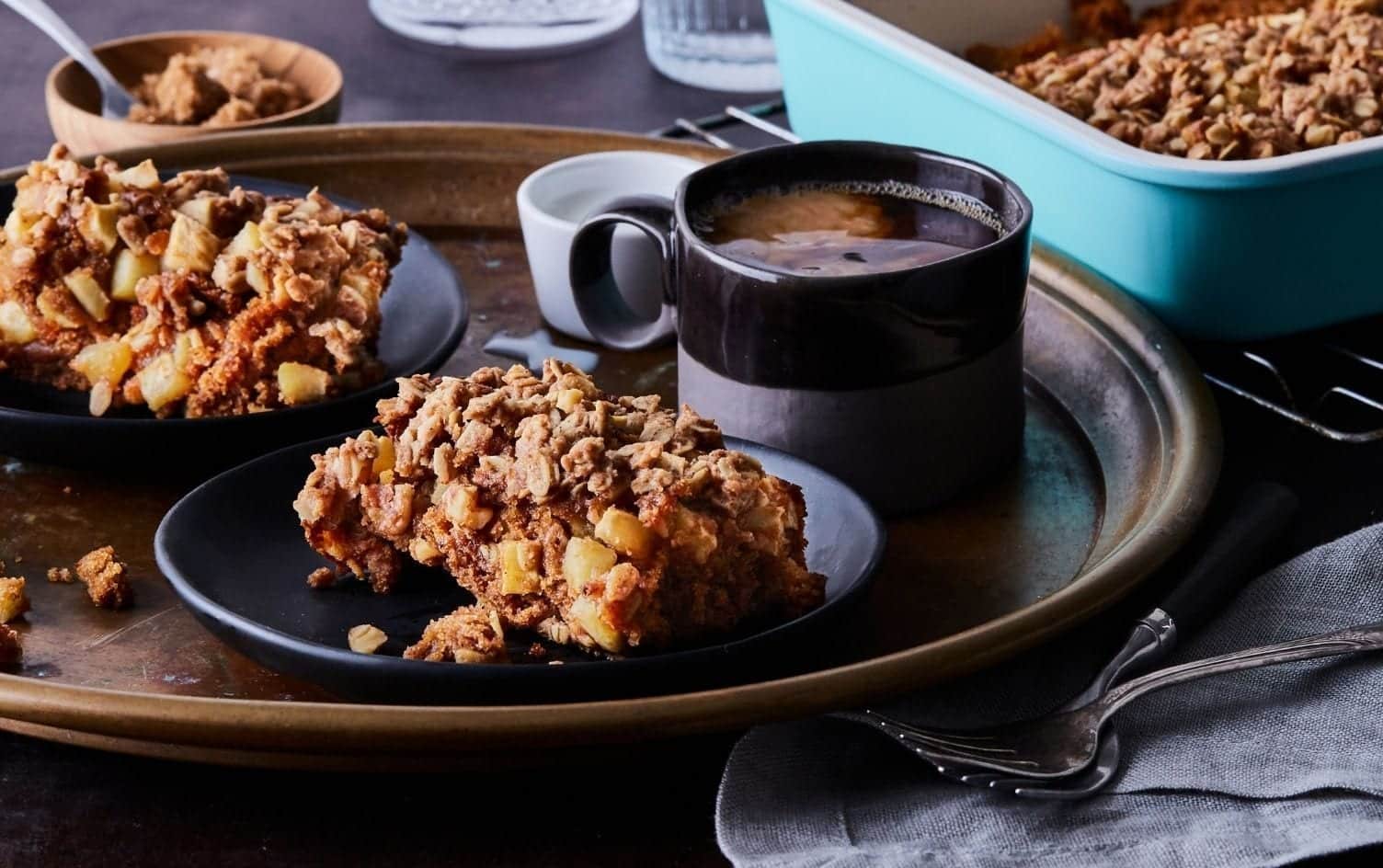Strolling down the oil aisle at the grocery store can be overwhelming. Not just in the sheer volume of choices, but also in the act of discerning which ones are the “healthiest” and most useful for what you’re making. We know vegetable oils like corn and canola are considered “refined,” which means they go through chemical processing during production, and are high in omega-6 fatty acids. If consumed in higher proportions to omega-3 fatty acids (as is in the typical American diet), omega-6 fats and the foods they are in can be inflammatory. I typically encourage my clients to use healthy alternative oils liberally when cooking, roasting and making salad dressings because of all the benefits healthy plant-based fats like those found in the oils below contain. Not only do they have anti-inflammatory properties, but these fats help the body absorb fat-soluble vitamins and minerals, and are essential for hormone production and cognitive function (to name a few). I’m sharing some of my favorite “alt” oils below.
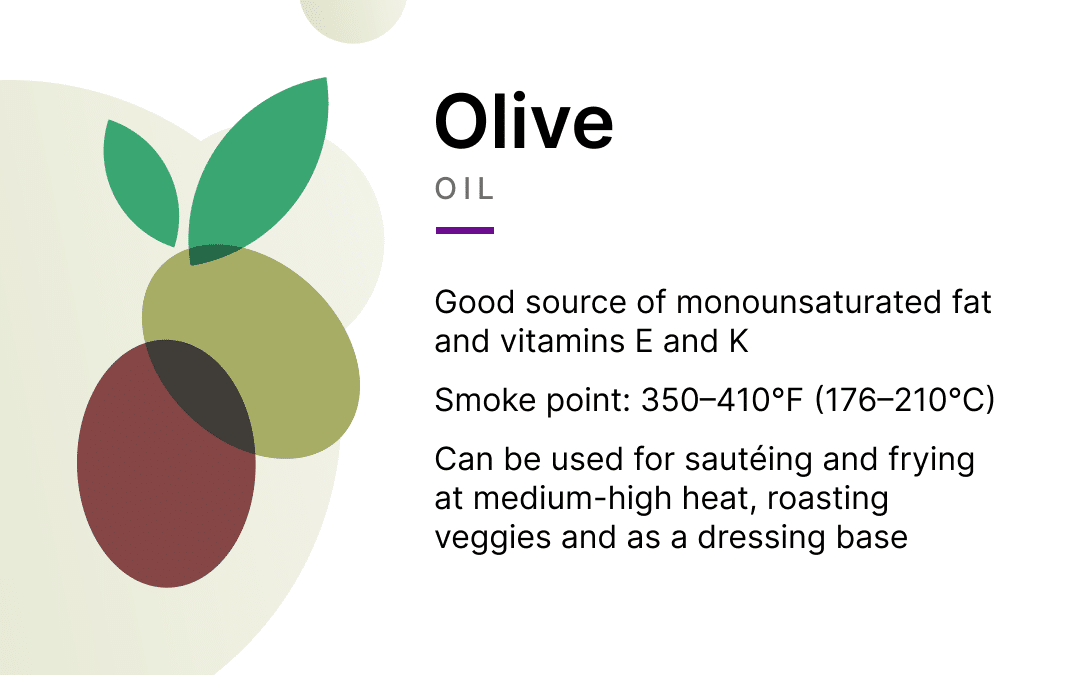
Olive oil is a nutritional powerhouse and a good source of vitamins E and K, which support heart and bone health, respectively. Extra virgin olive oil is the least processed form of olive oil and the most nutritious because of its antioxidant content; it also has the richest flavor. Olive oil is a good source of monounsaturated fats, especially oleic acid, which is important for cardiac health, reducing inflammation and may help lower LDL and total cholesterol. Consuming a Mediterranean diet rich in olive oil may also help reduce the risk of breast cancer, as found in a large randomized clinical trial. Olive oil has a smoke point of around 350–410°F (176–210°C) and can be used for sauteing and frying at medium-high heat, roasting veggies, and as a base for salad dressings thanks to its delicious flavor. Olive oil can also be used for baking as a 1:1 substitute for butter or vegetable oil — its strong flavor pairs quite nicely with muffins and cakes with lighter, citrusy flavors or more savory treats.
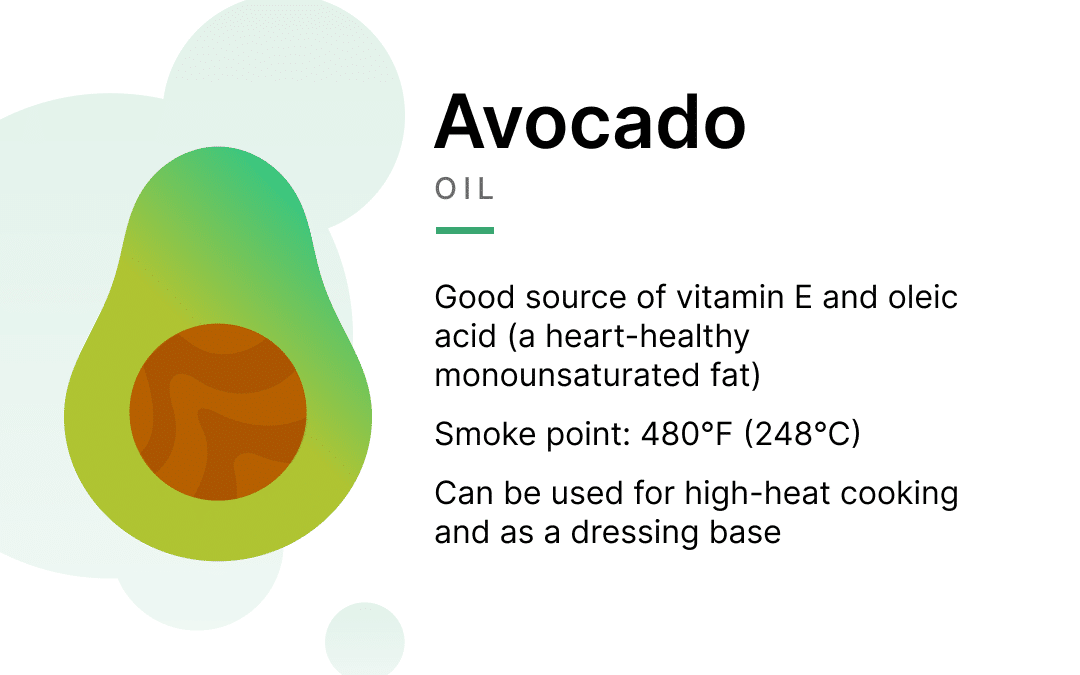
Avocado oil is another great, nutrient-dense alternative to vegetable oil. It is pressed from avocados, and, like olive oil, is high in the heart-healthy monounsaturated fat oleic acid. Avocado oil is also rich in vitamin E, a powerful antioxidant. For the most health benefits, choose unrefined, cold-pressed avocado oil. Avocado oil has a higher smoke point (around 480°F or 248°C) than olive oil and is better suited for high-heat cooking. Because of its pleasant flavor, avocado oil is also excellent as a salad dressing base or in baking as a 1:1 substitution for butter or vegetable oil.

Walnut oil is pressed from walnuts, and has a lovely, nutty flavor. Walnut oil is high in ALA, or alpha-linolenic acid, which is converted to omega-3 fatty acids in the body and has potent anti-inflammatory properties. Walnut oil can be used for cooking, but with high heat, its flavor may become slightly bitter. It is best used in salads from leafy greens to chicken salad, added to pasta dishes or grain bowls.
CLICK TO TWEET THIS ARTICLE > Read the @myfitnesspal dietitian’s guide to cooking oil options, including nutrition facts and when to use each. #myfitnesspal
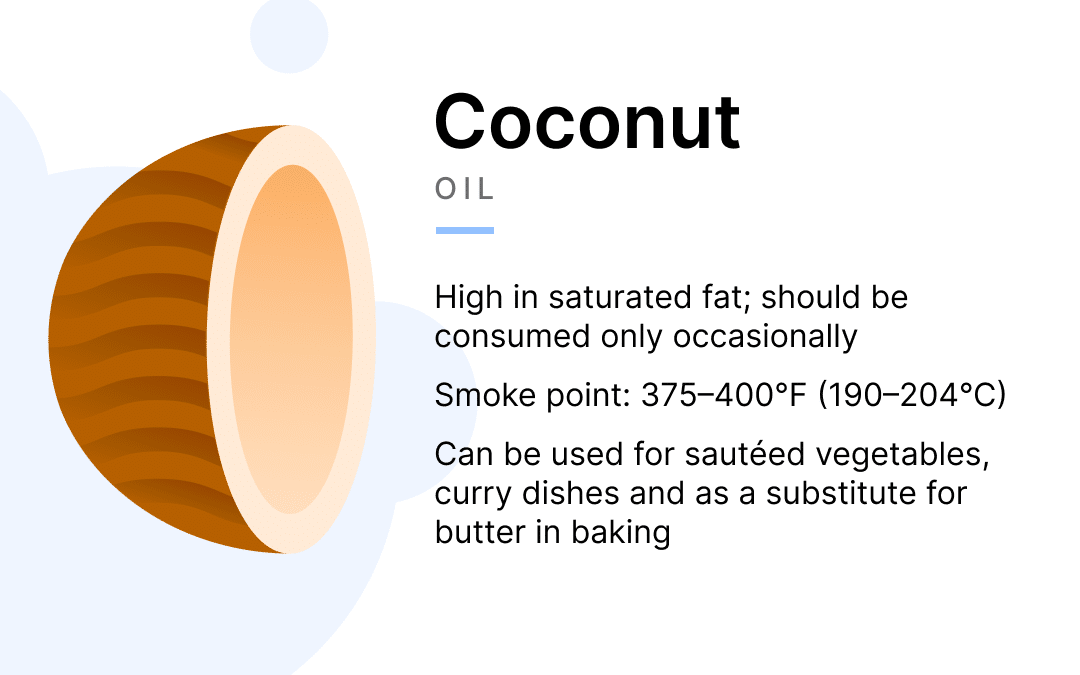
Coconut oil has a different nutritional profile compared to other oils here because it consists primarily of saturated fat. Some of the saturated fat in coconut oil is a medium-chain fatty acid called lauric acid, and it’s thought that lauric acid is absorbed more quickly by the body and used for energy, as opposed to being stored as fat. Regardless, numerous studies have found coconut oil may contribute to elevated LDL cholesterol levels and triglycerides, so it can’t be considered a heart-healthy oil and should be used only occasionally. Coconut oil does not contain significant amounts of other vitamins, minerals or macronutrients. It has a smoke point of around 375–400°F or 190–204°C. It can add a nice flavor to sautéed vegetables, curry dishes and as a substitute for butter in some baking recipes.
THE BOTTOM LINE
If you’re looking for the most nutrient-dense option, olive oil has the most scientific research backing its numerous health benefits. Aside from nutrition, oftentimes choosing an oil has more to do with what you need it for. For salad dressings or meals that require a drizzle of oil, something more flavorful like olive, walnut or avocado may be best. For high-heat cooking, coconut or avocado oil can work well. Variety is always key, and it’s even better if you’re using these oils with nutrient-rich foods like vegetables and lean proteins to help the body absorb the important fat-soluble vitamins and make meals more satiating.
Ready to take the next step? Unlock MyFitnessPal Premium to access custom goal settings, quick-log recipes, and guided plans from a registered dietitian. Premium users are 65% more likely to reach their weight loss goals!
